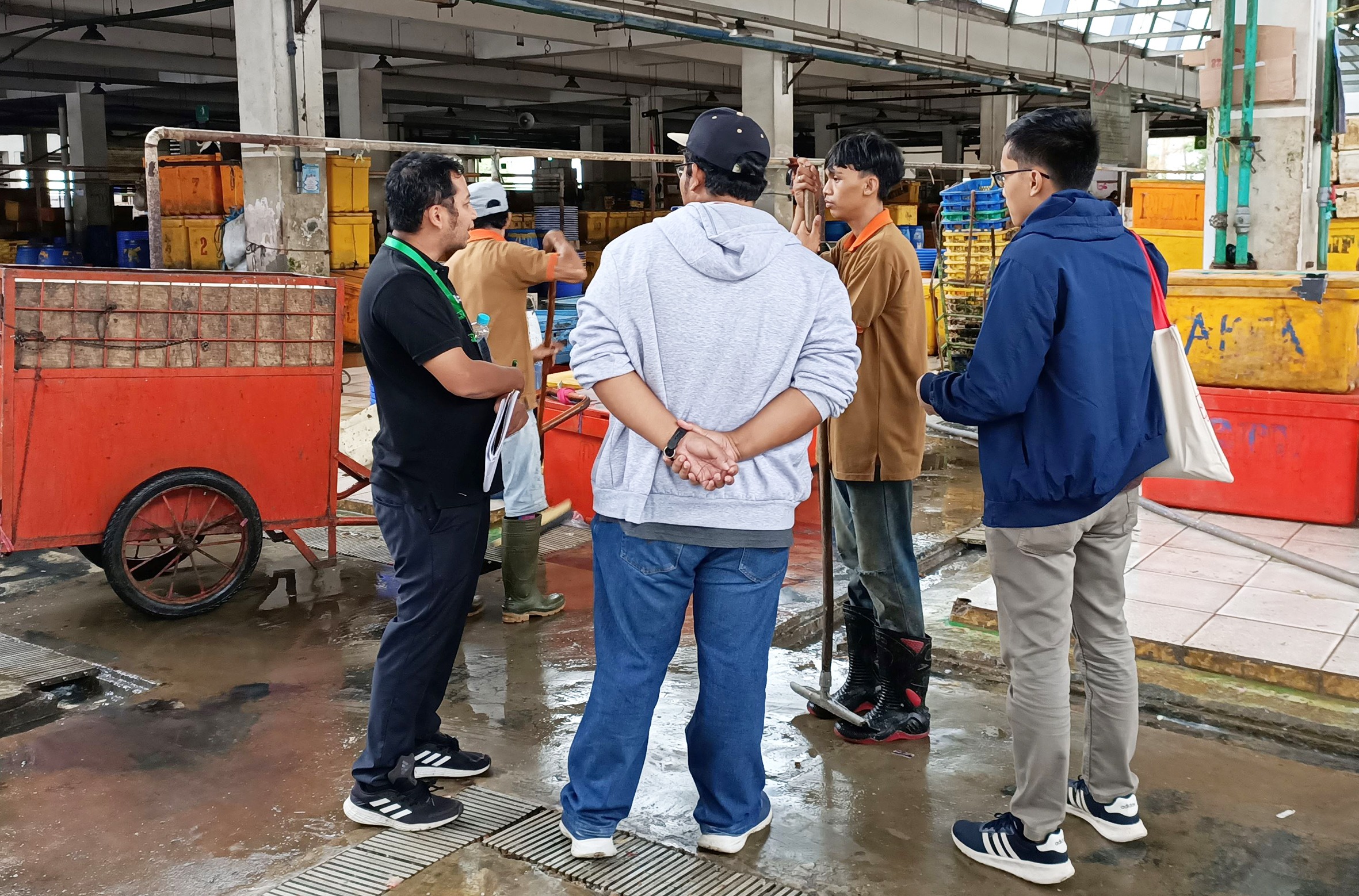

Social research training for fisheries scientists in Indonesia
April 22, 2025
Fisheries scientists from the Indonesian Research and Innovation Agency were introduced to the world of social research at a training course held in Jakarta in late February 2025 thanks to support from the Crawford Fund’s NSW Committee.
Dr Joanne Millar and Dr Amy Fallon from Charles Sturt University ran the course over five days.

“The course enabled participants to understand why social research is important for fish conservation programs, how to design and implement qualitative research, how to analyse data and present the results to a variety of audiences,” said Joanne, Senior Research Fellow in Environment and Livelihoods, Gulbali Institute, Charles Sturt University.
“Scientists working in agriculture, forestry and fisheries often lack understanding of social dimensions and applications of their scientific work. Sociology subjects are not included in their undergraduate or postgraduate training unfortunately, so this kind of on the job training and mentoring improves the outcomes of their research and development work,” she explained.
Participants practiced developing semi structured interview guides and interviewed stakeholders at a modern fish market including male and female vendors, consumers, restauranteurs, fish processors, cleaners and transporters. Then, each team presented their findings, their reflections and ethical considerations. Themes arising across all findings were discussed to understand the role of triangulation in validity and rigour of the research.

The trainers also showed the course participants how to select and write journal papers, how to use social research in their work programs and how to communicate effectively.
Feedback from participants was very positive on all topics covered said Joanne, and exemplified by the following quote: “I learnt how to make research deeper, more inclusive and grounded in community experiences. Research is not just collecting data, its understanding people, their stories and the unique challenges they face.”
“The training aligns with NSW committee aim to build capacity in social dimensions of agriculture, fisheries and forestry. Indonesia is at the forefront of hydropower development which prevents fish migration. Australia is assisting with design of fish passages and encouraging the Indonesian government to make it a regulatory condition of all contracts to build fish passages. However, it requires consideration of local livelihoods and engagement of communities in the decision making and social research can facilitate understanding and collaboration across all sectors,” she concluded.
The training initiative also received coverage in the local media, Community Involvement is Necessary in Building Fish Passages.




 0
0